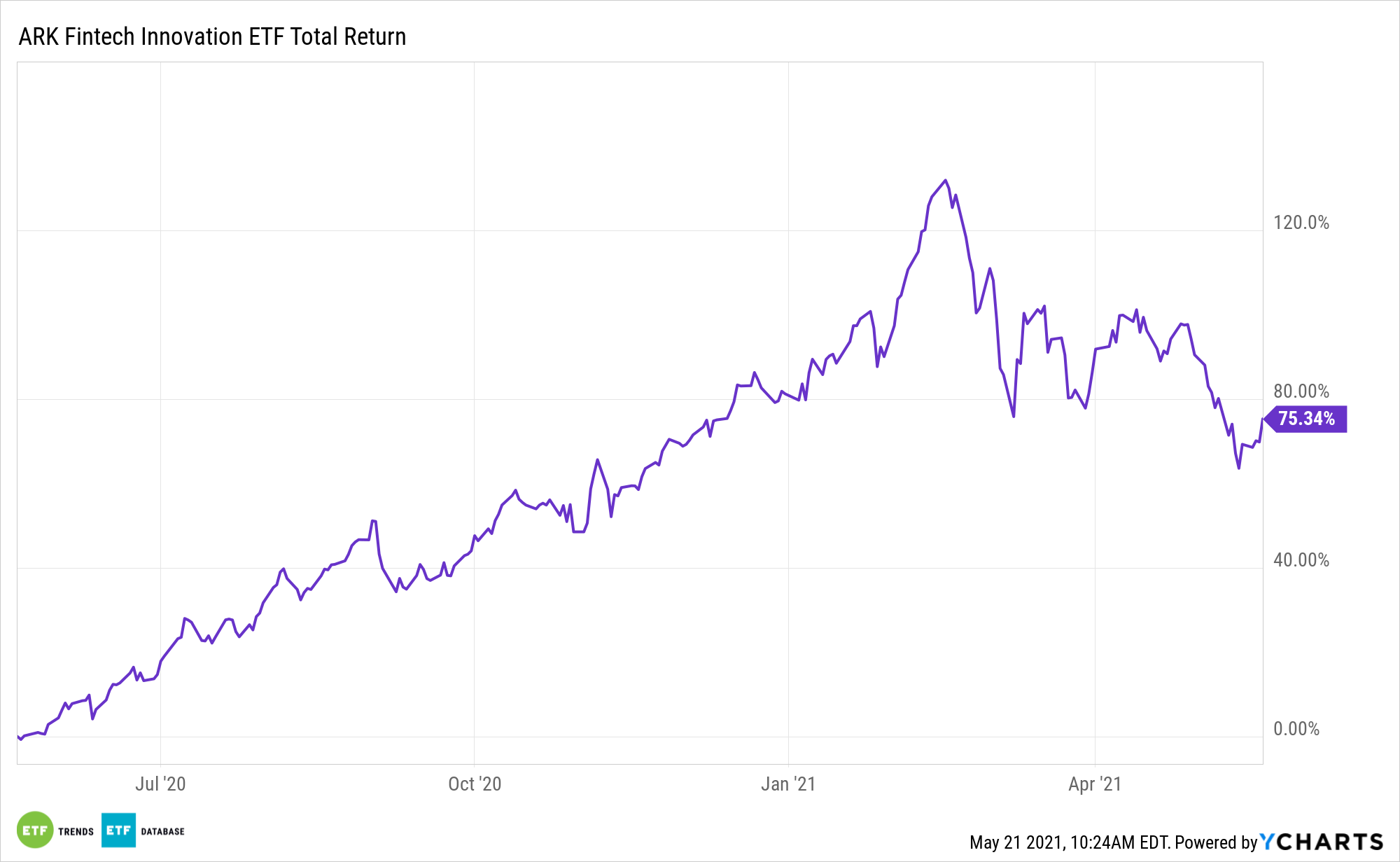If there’s one thing customers can agree on, it’s that they hate being nickle and dimed. When it comes to universally irritating fees, banks may have written the playbook.
For decades, that served old guard banks well, as they were able to haul in mountains of cash without threat from other competitors. Times are changing, and many fintech companies, including some residing in the ARK Fintech Innovation ETF (NYSEARCA: ARKF), are offering traditional banking services with lower or no fees relative to established rivals.
Recent data confirm traditional financial institutions have sweetheart deals that don’t benefit customers. A recent MagnifyMoney study was one of them.
“Between 2011 and 2020, consumers paid $345.1 billion in bank fees while collecting $231 billion in interest. That represents a deficit of $114.1 billion, or $198.40 per account,” reports Jacqueline DeMarco for Lending Tree.

Lots of Opportunity for ‘ARKF’ Holdings
The bank see situation eased a bit last year with customers paying $32.2 billion in fees, or almost $54 per account on average, according to MagnifyMoney. That was an improvement from 2019, but it still represents a deficit of $5.6 billion compared to the interest banks paid out.
Fees are one reason why fintech is part of the sustainability equation. Healthy economic growth is part of the sustainable development goals (SDGs) set forth by the United Nations in 2015. It’s hard to say economic growth is healthy and equal if some customers are paying up for or lack access to traditional banking services.
A prime example of a consumer finance disruptor is Square’s Cash App. Square is one of the largest components in ARKF. Prior ARK Invest research noted Square is “a consumer finance brand that customers trust and want to support.”
Conversely, it’s hard to find research or consumer surveys where folks speaking glowingly about old-school banks.
Established financial institutions may want to rethink fee schemes because there’s trillions of dollars on the line. Bank deposits stood at $17 trillion, as of April 28, according to Lending Tree. That’s a lot of territory for Square and other ARKF holdings to pilfer their business simply by making banking more affordable.
For more on disruptive technologies, visit our Disruptive Technology Channel.
The opinions and forecasts expressed herein are solely those of Tom Lydon, and may not actually come to pass. Information on this site should not be used or construed as an offer to sell, a solicitation of an offer to buy, or a recommendation for any product.

